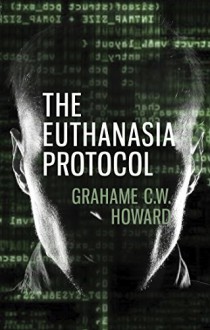
[I received a copy of this book through NetGalley, in exchange for an honest review.]
A book whose review was long overdue, and since the copy I got wasn't the fully edited, final product, there may have been some changes brought to it when it was actually published.
The society depicted in this novel, while definitely a caricature in many ways (including through some of its most outrageous characters, especially Doreese), gives food for thought, in that it deals with the issue of aging populations and the potential means to solving it. There's no denying that euthanasia could very well become such a means, at some point in the future, and the farcical approach here manages to highlight it fairly well.
"The Euthanasia Protocol" is one of those dystopian stories where the world has gone a nonsensical road, with a government so entrenched within its ways and desires to "make things right" again after religious wars that it fell head first into the very same mistakes it was trying to avoid. The Protocol is revered like a messiah, officials make a point of convincing themselves that euthanasia for "criminals" is not capital punishment, and trials and verdicts are left in the digital hands of computers fed information through a system that just cannot ensure common sense to bear any weight. It is comical, it is a farce, and it has the potential to make people both laugh and shudder—because the execution (pun totally intended) may look ridiculous, but the contents are quite frightening. And it's not all giggles, since quite a few characters throughout the story are killed in the name of the Protocol, to make an example, to cause other people to bend and break, or simply to fuel a wish for personal revenge.
My main criticism, and one that unfortunately mitigated my enjoyment, was the writing style itself. It may just be me, or it may be because I had an ARC and not a final copy (though in my experience, ARCs are so close to their published version that it's approximately the same—I mean in style, not typos and the likes). I don't know. I kept finding it too "dry", describing the characters' feelings and thoughts rather than letting me see them in action, so to speak. It made thoughts and dialogues rather stilted, all the more when The Boy was concerned: I'm all for stopping dumbing down teenager characters, but nobody thinks or talks like he (and others) did, even as adults. And I'm not sure it was absolutely necessary to enforce the satirical side and the novel's messages through a narrative of the "tell, don't show" kind.
Conclusion: 2.5 stars. Enjoyable, but I admit it would've worked better for me if the writing had been different.


 Log in with Facebook
Log in with Facebook 







